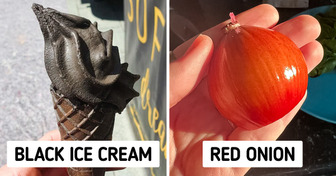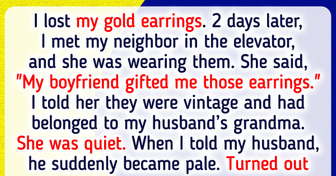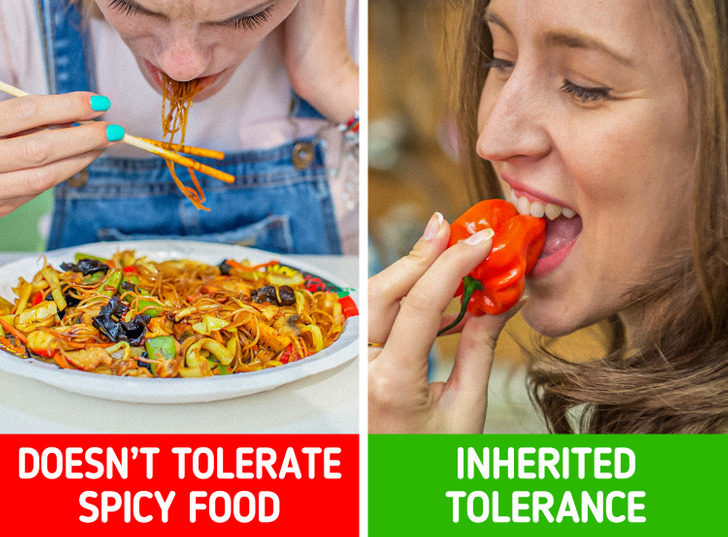What about those of us who need 9-10 hours of sleep and always feel like we are climbing out of a pit of fog and lead every time we wake up, regardless of how long we've slept?
7 Habits You Probably Have but Didn’t Know Were Genetically Transmitted to You
We usually speak of genes in simple terms, such as who we got our eye colour from. However, the list of things we can inherit from our parents is much longer. Our genetic makeup affects more than just our hair, skin or eye colour. According to scientists, almost every behaviour or preference we have may actually be a genetic trait.
We at Bright Side were surprised by these facts, so we invite you to take a closer look at these 7 characteristics you might have but didn’t know they’re genetically transmitted to you.
1. Only 4 hours of sleep may be enough for you.
Doctors usually recommend around 8 hours of sleep every night to keep our brains and bodies functioning. However, some people report sleeping even 2 times shorter than this without experiencing side effects. These so-called elite sleepers can live on 4-6 hours of sleep thanks to the gene found in up to 5% of people. These genes allow people to clear toxins from the brain and body during sleep more efficiently than others, so they require less time to rest and refresh.
2. You may be genetically predetermined to tolerate pain and spicy food.
Whether you have high tolerance to pain and spicy food or no tolerance at all, chances are that your genetics is responsible for that. Furthermore, MC1R, the same gene variant that gives people red hair also indicates their sensitivity to pain. That’s why gingers may have a higher general pain tolerance.
3. Coriander may smell like a soap to you.
While some people can’t imagine a meal without a pinch of freshly chopped coriander, some can’t stand the taste of this herb. This hatred is caused by the markers located near genes that determine our sense of smell with receptors that detect aldehydes, compounds found in soap. Aldehydes are also a component of coriander aroma, which is why some people report a soapy taste when they eat it. Thus, next time someone refuses to eat coriander, blame it on genetics instead of assuming that the person is spoiled.
4. The “blue genes” may affect your need for socialization.
Researchers took a study in which genes are linked with sadness. It turned out that these genes may also influence our need for socializing and feeling of loneliness. Therefore, the genetic inheritance may explain why some people are social butterflies while some find comfort and happiness in an isolated lifestyle.
5. Sneezing at the sun is a genetic trait.
Sneezing is often associated with the flu or allergies, but some people have a specific syndrome called “photic sneezing.” Those who experience it can’t help but sneeze every time they are suddenly exposed to bright light. Photic or light sneezing is a dominant trait, meaning that if one of your parents has this reflex, you have a 50% chance of having it too.
6. Genetic factors affect your response to caffeine.
A coffee break has become an essential part of our daily routine. However, though many people can’t imagine a morning without a cup of coffee, some simply cannot stand caffeine in their metabolic system. The reason for this difference lies in our genes. Namely, a gene called CYP1A2 controls our caffeine metabolism. Depending on whether we’re slow or fast metabolisers, this gene determines how well our body will respond to caffeine.
7. You may blame your genes for infidelity and flirtatious behaviour.
Infidelity is something that can’t be justified in any way, but studies suggest that cheating may run in someone’s DNA. According to findings, a genetic variation of DRD4 called 7R+ is linked to unfaithfulness and promiscuity. So, while being loyal is a matter of choice, some people may indeed find it harder to fight against their genetically affected need to commit infidelity.
Do you think you have any of these genetic variations?
Comments
Related Reads
9 Designers Who Went to Great Lengths to Make Celebs Feel Comfortable and Safe

15 Photos That Prove Having a Sibling Is a Game Without Rules

13 Phrases Parents Use That Can Push a Kid to Seek Therapy in the Future

20 Pics That Can Grab Your Heart With Their Backstories

16 Womanly Traditions From the Past Generation That Should Be Forgotten Forever

18 Discoveries That Are Enough to Tickle Anyone Pink

17 People Whose Day Held an Unexpected Surprise for Them

10 Single Parents Who Got Knocked Down but Refused to Stay There

My Teenage Daughter is Shaking My Confidence as a Woman— I Decided to Send Her to Boarding School

13 People Who Discovered Hidden Truths About Their Partners

12 Plot Twists That Turn the Story Upside Down

11 Plot Twists That Could Even Make Hollywood Jealous







